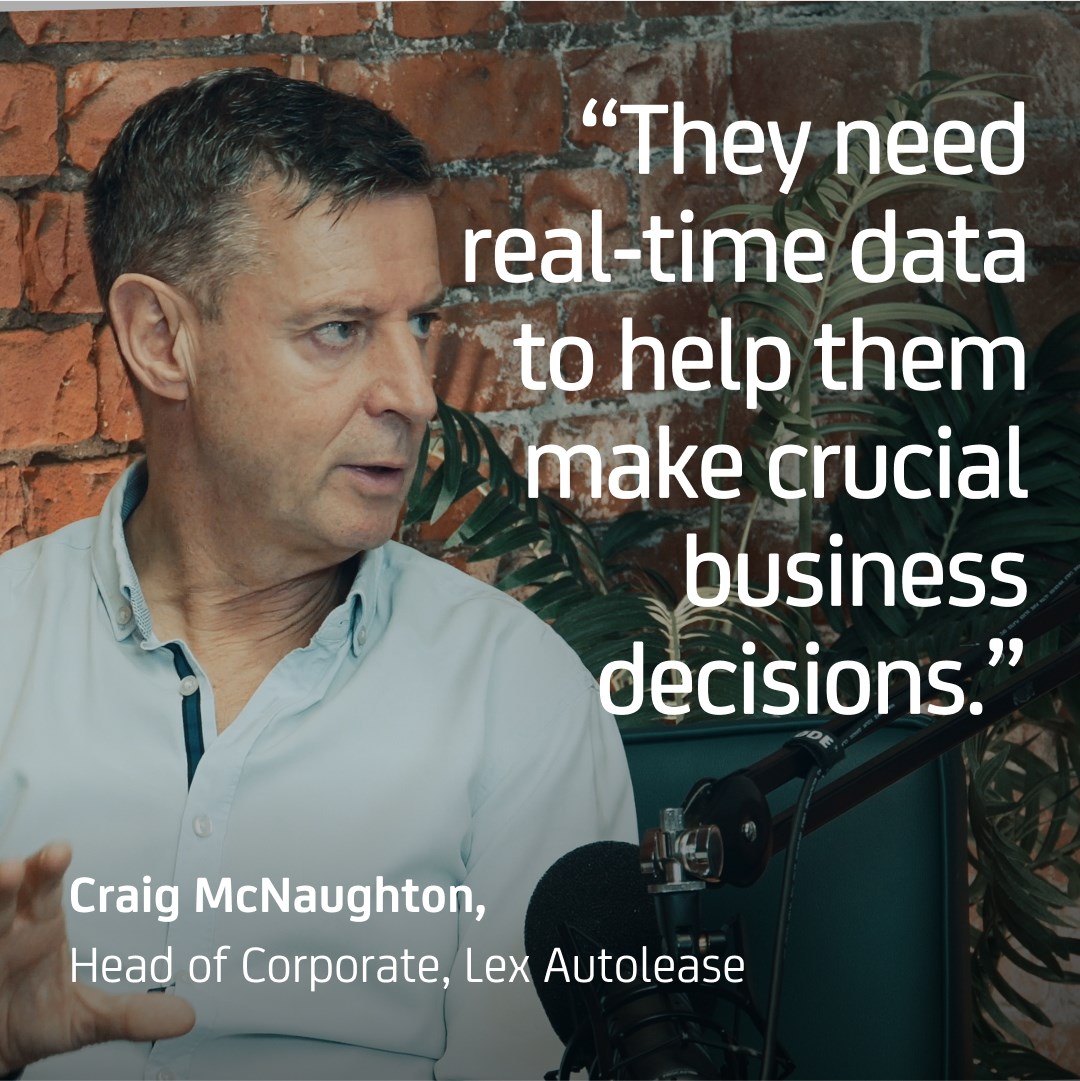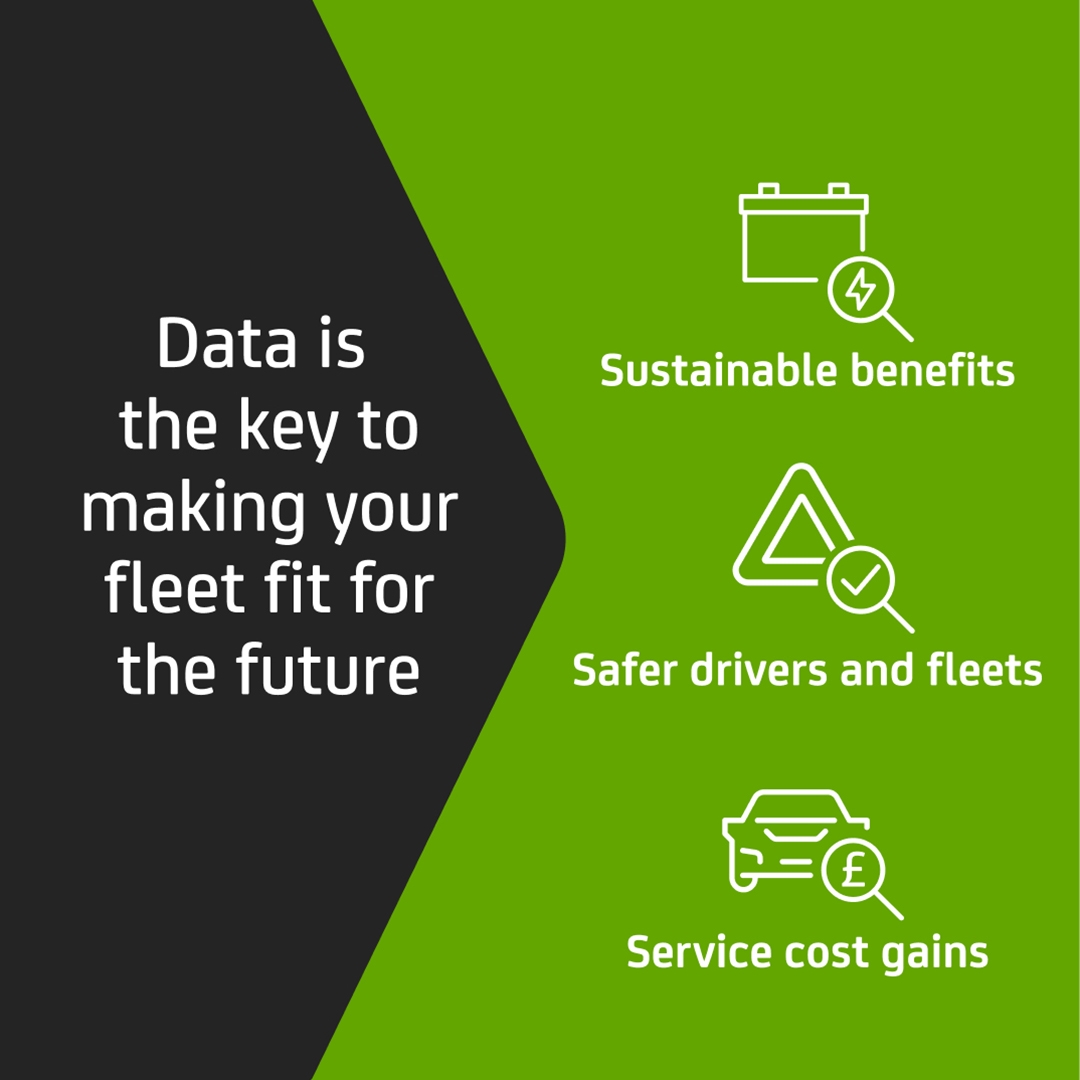The Power of Data

A game changer for fleet management
Data is at the core of everything Lex Autolease does. “We’re a data company that just happens to lease vehicles.” Says Craig McNaughton, Head of Corporate at Lex Autolease.
Data isn’t just a nice-to-have; it’s a cornerstone of effective decision-making. For UK fleet managers, harnessing data is no longer optional. Whether reducing costs, improving driver safety, or making a case for the transition to electric vehicles, data can provide actionable insights that unlock your fleet’s full potential.
Driving down costs
Managing fleet costs remains a top priority for businesses. Data analytics enable you to identify cost-saving opportunities that might otherwise go unnoticed.
For instance, fuel consumption is one of the largest expenditures for any fleet. Telematics systems track vehicle fuel usage, idling time, and route efficiency. This data allows managers to identify wasteful practices - such as excessive idling or inefficient routes - and implement changes to reduce expenses. Predictive maintenance, powered by real-time vehicle diagnostics, helps lower repair costs by identifying small issues before they turn into major repairs.
Data also facilitates accurate Total Cost of Ownership (TCO) calculations, which help you evaluate the true cost of operating each vehicle, factoring in depreciation, maintenance, insurance, and other expenses. Armed with this information, you can make informed decisions about vehicle replacement cycles and fleet composition to ensure long-term savings.

Enhancing driver safety
Driver safety is not only a moral imperative but also a critical financial consideration for businesses. Accidents drive up insurance premiums, disrupt operations, and affect employee wellbeing. Data can significantly reduce these risks by fostering a culture of safer driving.
Fleet telematics and in-vehicle monitoring systems collect data on driving behaviour, such as speeding, harsh braking, and rapid acceleration. Managers can analyse this information to identify high-risk drivers and provide tailored training or coaching to correct unsafe behaviours. Additionally, many systems such as in-cab cameras offer real-time alerts that warn drivers of dangerous habits before they lead to incidents.
This proactive approach helps protect the driver, the public and reduces the maintenance and insurance costs.
Making the case for electric vehicles
For many fleet managers, transitioning to electric vehicles remains a pressing but complex decision. Here, data proves invaluable by dispelling uncertainties and building confidence in the future of EVs.
Analysing your fleet’s current usage patterns, such as daily mileage and routes, can determine which vehicles are ideal candidates for electrification. With insights into energy costs versus fuel expenses, you can calculate the potential savings and carbon reductions EVs offer. Data also enables precise planning for charging infrastructure requirements, including optimal locations for chargers and projected energy demands. Moreover, with the government’s 2030 ban on the sale of new petrol and diesel cars fast approaching, using data to navigate this transition is not just smart - it’s essential for staying ahead of regulatory change and maintaining operational efficiency.
Unlocking potential with Lex Autolease
At Lex Autolease, we know that data is the key to transforming fleet management. As Adam Freestone, Engineering Lead, explains: “What we do more and more is provide analysis of the data. It's the expertise our people bring. Whether it’s optimising costs, making contract amendments, improving vehicle efficiency, reducing accidents and fines, or creating effective policies on emissions and sustainability, we interpret the data and deliver actionable recommendations to our clients.”
With the largest data lake in the industry, we also offer benchmarking to help clients compare their fleet performance against peers in the same sector. By leveraging this data, managers can drive innovation, enhance fleet operations, and stay ahead in a rapidly evolving marketplace.
The key is a proactive approach: collect, analyse, and act on your fleet data to reduce costs, boost safety, and future-proof your operations.